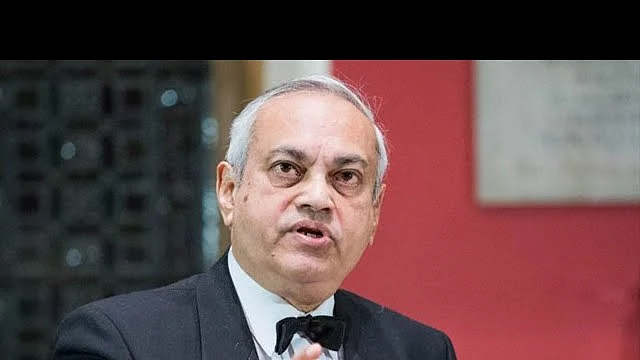Opinion
Must journalists be the judge, jury and prosecutors at the same time?
The president of IJA London was in Delhi to speak on the profession. In a statement he explains the context of a controversial press conference on EVM hacking hosted by the IJA last month

I thank the Press Club of India for inviting me to speak and to share with fellow journalists in Delhi a few thoughts to protect our profession. I thank all who have spared the time to be here today.
I have been a broadcaster and journalist for 48 years; 42 of those years as a foreign correspondent. For the greater part of my career I have worked for BBC and CNN. I have also represented the Ananda Bazar Group and The Times of India.
The Constitutions of India and the United Kingdom grant a journalist a lawful right to discharge his or her duties freely and without interference. It is a right we should never compromise.
A free news media is one of the pillars of a democracy. The Republic of India is incomplete without an unfettered exploration and unearthing of news, regardless of how comforting or uncomforting this may be to the subject of coverage.
Published: undefined
On 21 January, I, as president of Indian Journalists’ Association (Europe), invited Syed Hyder Ahmed, a man of Indian origin living in the United States, who claimed to be a radio engineer and at one time a designer of Electronic Voting Machines (EVMs) in India, to attend a press conference in London. He said he would demonstrate live how an EVM can be tampered with.
In the event, this did not happen. He did not turn up. He told me he had been physically attacked and was therefore in no condition to travel. He, however, appeared live by Skype.
For the greater part of the 90-minute interaction, Syed was probingly questioned by the journalists present. His presentation, though, was unconvincing and far from the expectation he had raised about his ability to prove that EVMs were not impregnable.
News media freedom means one does not prejudge the outcome of a press conference. One calls a press meet with an open mind, to pursue news potential, which is a journalist’s fundamental responsibility. In other words, the principle of summoning a press conference without fear or favour is paramount.
In order to be completely transparent, I invited the Election Commission of India and six political parties in India recognised by the ECI as national parties, namely, BJP, Congress, CPI, CPI(M), NCP and BSP, to attend the press conference.
I would venture to say that we as journalists have an obligation to investigate and determine whether Syed’s utterances were wholly a fabrication or was there an element of truth in what he said.
What appears to be the case is he was granted asylum by the United States on 1 March 2018. My question is: what was the basis for US authorities to grant him asylum?
Published: undefined
Follow us on: Facebook, Twitter, Google News, Instagram
Join our official telegram channel (@nationalherald) and stay updated with the latest headlines
Published: undefined